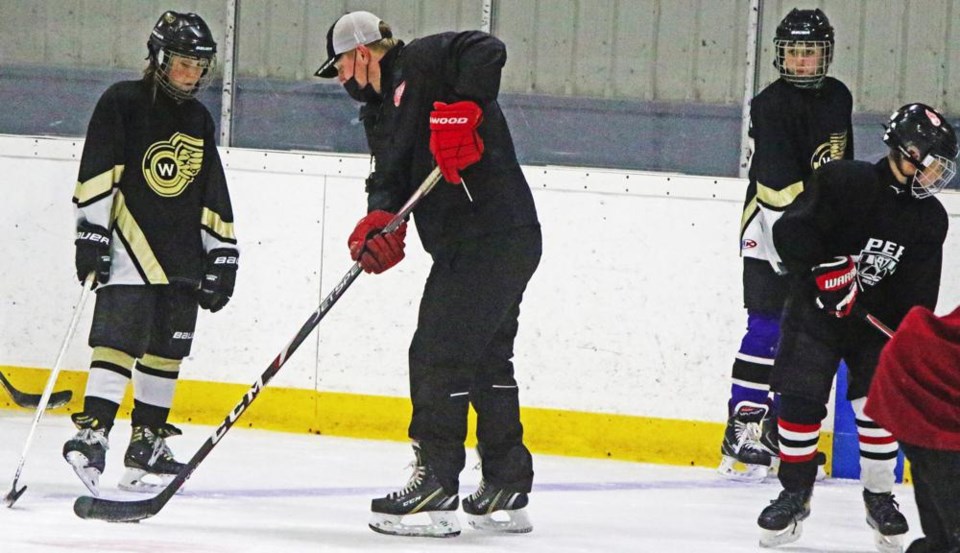WEYBURN – An update on the Hockey Canada Hockey Skills Academy pilot program was provided to the trustees of the Holy Family Roman Catholic Separate School Division at their monthly board meeting Wednesday, and students and staff alike are happy with great successes reported for the Weyburn portion of the program.
The program is run at St. Michael School in Weyburn and Sacred Heart School in Estevan, and the principals of both schools spoke via Zoom to the board.
Sacred Heart’s program is offered to two cohorts, to Grades 5-6 (24 students) and Grades 7-8 (14 students), both English and French students.
The program at St. Michael is slightly different, as this year it is only offered to a cohort in Grade 6 with 24 students, and they are on the ice for two afternoons in a six-day cycle, with two hours of ice-time and one hour of dryland training.
The common denominator for the program is it is curriculum-based, tuition-based (as there are extra costs), and equity is important, as the program is not just for boys or just for hockey players. All skill levels from beginners to elite players are included.
The teacher for the St. Michael program is Tessa Scrupps, and the program operator is Mike Weger, who takes care of all the arrangements and logistics for the program. The main on-ice coach has been Red Wings coach Cody Mapes, who “brings a lot of experience to the program. They really like being coached by him,” said principal Dean Loberg.
He played a short video that featured comments from some of the students, and from Scrupps, about what they think of the program.
One player said, “Lots of my friends are in the class, and it’s really fun,” and another added, “It gives me the opportunity to practice more hockey.”
Scrupps noted that coach Mapes is “great with the kids” and has been able to bring his experience to the ice. In addition, Weger has been able to bring in other coaches from the community to help out, and on occasion he’s been on the ice also, and her experience with power-skating has also come in handy.
In terms of being able to teach in relation to the program, Scrupps noted there were eight outcomes that were covered by the on-ice instruction from the curriculum.
Some of the highlights of the program were the same for both programs, as the students in both Weyburn and Estevan are highly engaged in the program and are more excited to come to school as a result, and a number of behaviour issues were reduced significantly from last year as well.
Some of the challenges in Weyburn have been facility coordination issues, which have taken some work but has worked out.
“Supervision has been a challenge, because we didn’t have male teachers to supervise in the change room,” said Loberg. “With on-ice staff, we’ve had some changes in staff because of changes in the local hockey environment. Cody is an excellent coach, but when he’s on the road (with the Red Wings) we have guest coaches.”
In reference to the increased engagement of the students with school, he said the students have very much taken on a “team” attitude in their approach to class work and at the school as a result of this program. “That’s really been a celebration,” he added.
As he looks to the future, Loberg said they are hoping to expand to a Grade 6-9 model next year, taking inspiration from Estevan’s success.
“We’ll be surveying our parents to see how they feel about how the program has gone, and what changes we should make. We’ll survey the students as well,” he said.
There are also discussions about expanding this kind of program to more interests than just hockey next year, such as other sports, fine arts or science and technology (STEM) interests.
“The first thing is to get more feedback to see if the program is of value to the students,” said Loberg.
“We are excited about the program,” added superintendent Chad Fingler. “For most of these challenges, we found ways to overcome and manage them. There was a lot of work that went into this beforehand, so when it geared up it hit the ground with very few hiccups.”




